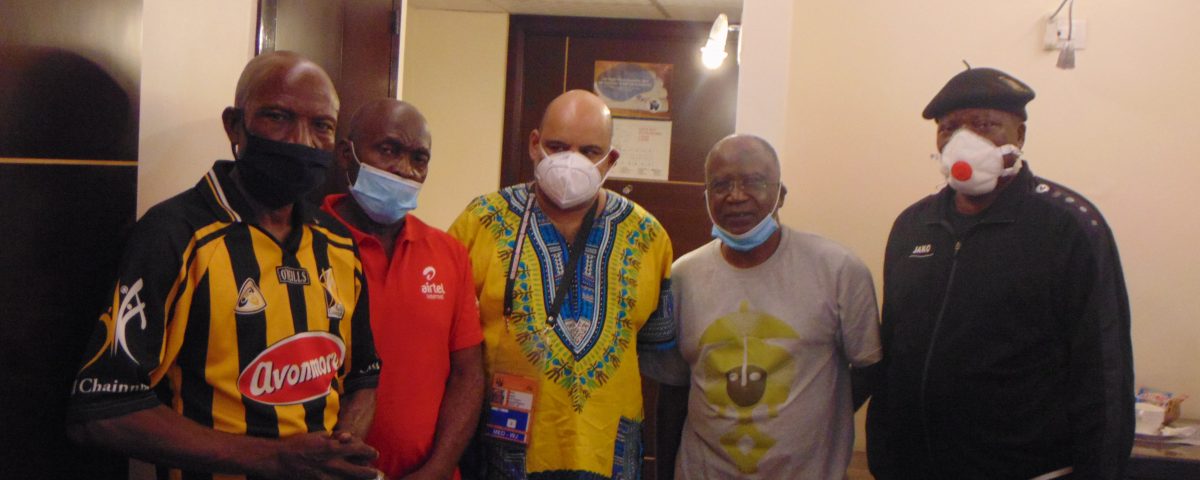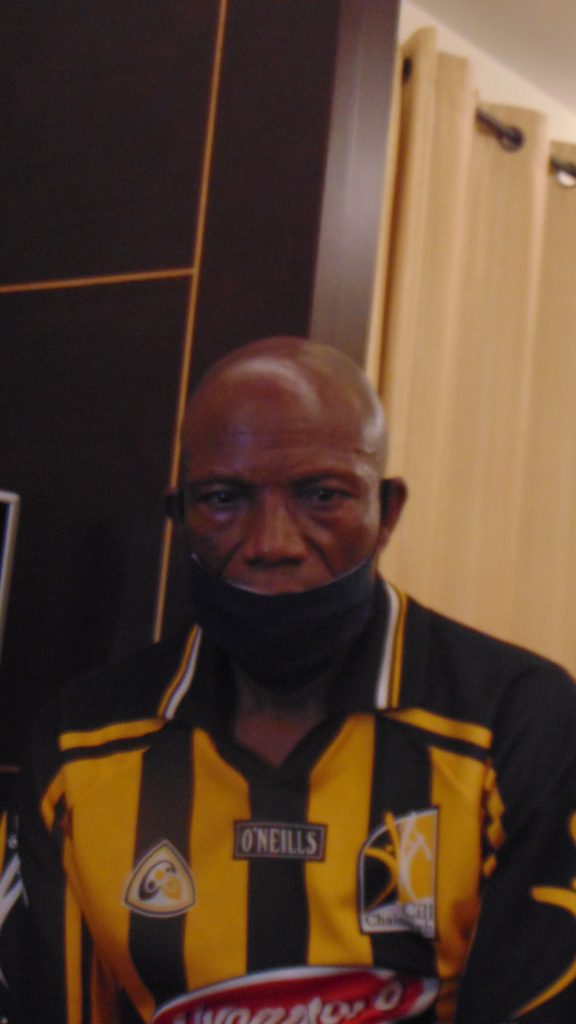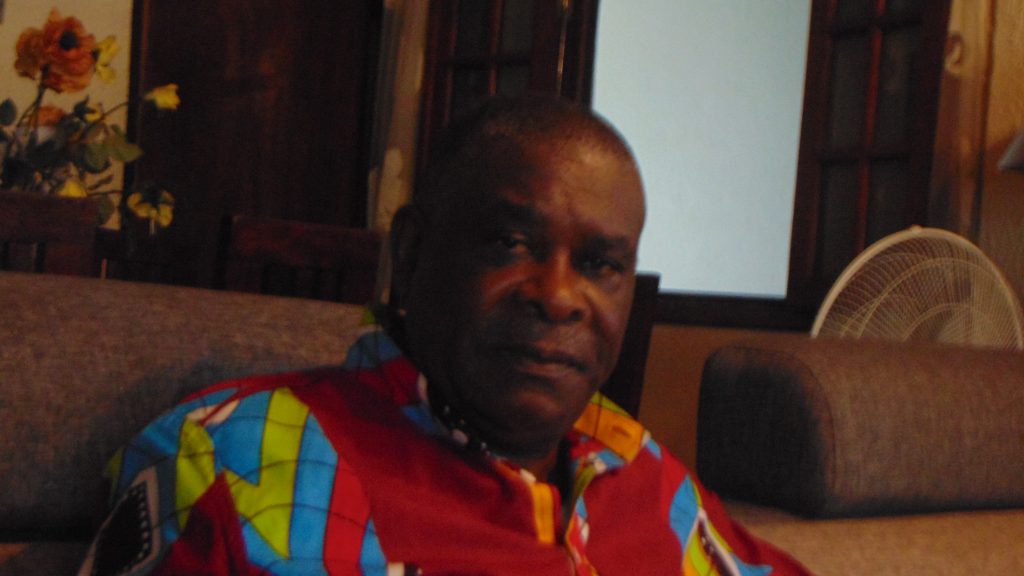Historic AFCON (Part Six)

Historic AFCON (Part Five)
January 2, 2024
AFCON Countdown
January 3, 2024Historic AFCON (Part Six)

By Satish Sekar © Satish Sekar (January 2nd 2024)
Cometh the Underdog
Sudan’s former dictator Jafaar Nimeiry died in 2009, aged 79. He was the country’s leader when Sudan made history by winning its first and only Africa Cup of Nations (AFCON) title. His football honeymoon was short-lived, as he soon suffered a coup attempt – others would follow – but he clung to power to power for 16 years until he too was ousted by a coup d’état.
But AFCON quickly moved on from Sudan. Cameroon would host the 1972 edition, believing that they would host and win. That didn’t happen, but the Ivorians would not appear in the 1972 AFCON Finals. They were beaten in the qualification round by Congo-Brazzaville. That meant that the great Laurent Pokou would not get the chance to add to his tally. But Congo-Brazzaville would shock African football.

They were supposedly minnows, both on the pitch and off it. François M’Pelé scored the first in the 2-0 win at the Stade Alphonse Massamba-Débat[1] that qualified them for the competition. They were supposed to be in Cameroon to make up the numbers, but after eliminating the Ivorians, they should not have been under-estimated.
The Congos
The political difference between the Congo neighbours were huge. Mobutu Sese Seko had consolidated power in Zaire, as Congo-Kinshasa was now known, and the People’s Republic of Congo was providing refuge for opponents of Mobutu, although Pierre Mulele was tricked into believing that he had been amnestied. Instead, he was arrested, tried, condemned to death and executed rapidly.[2]
This added to the rivalry on the pitch. This AFCON – the first that Cameroon hosted – made history. The Indomitable Lions failed to host and win, but Cameroon went on to become the second most successful nation ever in the Africa Cup of Nations, winning five times, but never on home soil.
Congo allegedly in Cameroon to make up the numbers had not read the script, or rather they ripped it up and wrote their own instead. In Group A Cameroon qualified top having beaten the minows, Kenya and Togo, and drawn with Mali who drew all three matches. Kenya and Togo also drew with each other, so Mali joined the hosts in the knockout phase.
Group B pitted Zaire and Congo against each other. Congo and Morocco – fresh from their failure to qualify two years earlier shortly after they secured the only African spot in the 1970 FIFA World Cup – drew 1-1 in the opening match. Zaire and defending champions Sudan also drew by the same score. Morocco and Sudan drew 1-1 and Zaire won bragging rights of the Congos courtesy of AS Vita’ striker Jean Kalala N’Tumbi’s brace in the 2-0 win. Congo was bottom of the group and facing a quick return home. Only beating the champions would do and results in the other match could affect their chances too.

They did their part, beating Sudan 4-2. Jean-Michel M’Bono’s brace, coupled with a goal apiece by M’Pelé and Jonas Bahamboula Mbemba (Tostao) sent Sudan home, bottom of the group. Morocco and Zaire drew, leaving Zaire topping the group and Congo advancing to the knockout phase at Morocco’s expense, courtesy of the toss of a coin.
The knockout phase saw Cameroon’s hopes extinguished. Noël Minga scored the goal that broke Cameroonian hearts in the 1-0 win. Meanwhile, Zaire lost 4-3 to Mali – top-scorer Fantamady Keïta scored a brace. Cameroon rallied to secure third place by beating Zaire 5-2, but it was not enough. Members of that squad were not recognised for their achievements. It would take over half a century for one of their stars, Charles Léa Eyoum to be recognised at the second AFCON Cameroon hosted, thanks in part to my intervention. Astonishingly, the Congo legends were not invited even though they had been for the African Nations Championship the previous year.

The People’s Republic of Congo (now the Republic of) defeated Mali 3-2 in the final, denying the great Salif Keïta who sadly passed away last year his best chance of AFCON glory. Player of the Tournament, M’Pelé scored the winner with an assist by M’Bono, who also netted a brace. Moussa Diakhité opened the scoring and Moussa Traoré scored the final goal of the match for Mali, but Congo won the match in the second half netting thrice in just six minutes to pull off perhaps the most unexpected win ever in the history of AFCON.
[1] The stadium is named after a former Congolese political leader, Alphonse Massamba-Débat. Fulbert Youlou, the country’s first leader after independence, was ousted in a coup d’état in 1963. Massamba-Débat took over and moved the government leftward, but he was himself overthrown in a coup five years later by Major Marien Ngouabi, who he had previously arrested.
Massamba-Débat was charged but acquitted of political murders and allowed to return to his village. Meanwhile, Ngouabi changed the country’s name to the People’s Republic of Congo as the 1960s came to an end. Like Massamba-Débat, Ngouabi governed a one-party state. Ngouabi was assassinated in March 1977, and after a brief interlude under Colonel Joachim Yhombi-Opango, Denis Sasou-Nguesso seized power in 1979. By then, Massamba-Débat had been executed for alleged involvement in the assassination of Ngouabi within days of the assassination. In 1991 Massamba-Débat was rehabilitated and a decade later the stadium that bears his name was refurbished.
[2] Pierre Mulele had been associated with murdered Congolese icon Patrice Lumumba. He had led a rebellion in Kivu Province and went into exile in Congo-Brazzaville. He was lured back to Congo-Kinshasa by the promise of amnesty. Then Foreign Minister, Justin Bombokoa negotiated his return and accompanied Mulele back. Almost certainly on Mobutu’s orders, Mulele was tried and executed. The government of Congo-Brazzaville broke of diplomatic relations with its neighbour in protest at the treatment of Mulele.

